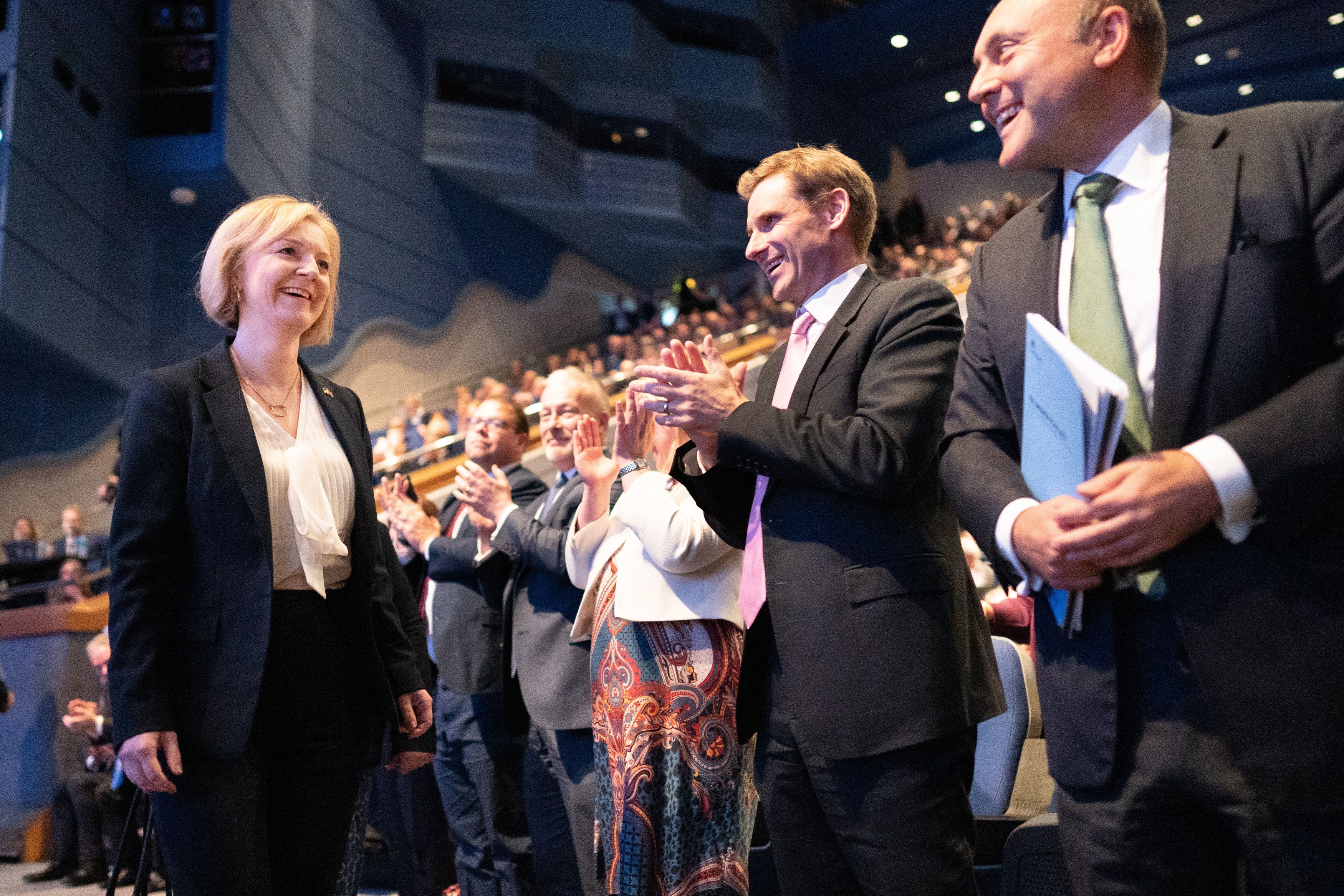It looks as if there is no one who can hold the Tory coalition together
During the leadership campaign, it was obvious that there was a big difference in policy between the two halves of the coalition – and it is a bigger difference than between the one-nation Tories and the Labour Party, writes John Rentoul


Liz Truss has learned a brutal lesson in how parliamentary systems work. She made the elementary mistake of thinking that, because the Conservatives have a working majority of 71, she had a working majority of 71, and could therefore carry out the policies on which she had just been elected leader.
But she didn’t have a majority at all, because her very election as leader divided the Conservative Party in two. The party, like the Labour Party, and like any big party in a two-party, first-past-the-post system, is a coalition. Only the leadership election made this explicit. It sharply delineated one wing of the party, the Reaganite libertarians, from the other, the one-nation Tories. During the leadership campaign, it was obvious that there was a big difference in policy between the two halves of the coalition – and it is a bigger difference than between the one-nation Tories and the Labour Party.
The one-nation Tories and the Labour Party agree, for example, on a windfall tax and the reluctant need to put up corporation tax to try to turn the public finances around eventually. More to the point, they agree on keeping the top rate of income tax, which is why Truss had to send Kwasi Kwarteng out to abandon the policy, because it cannot get through what is in effect a hung parliament in which the Rishi Sunak Party holds the balance of power.
That is why benefits will have to be uprated by inflation, because that is what the majority in the House of Commons will vote for. This, Truss now realises, is how parliamentary democracy works.
The Conservative conference in Birmingham is like a wasteland after a battle. It is a genteel wasteland because it is the Tory party. There are none of the screaming recriminations that featured in Labour conferences in the 1980s, where the ideological divisions were just as deep. There are the occasional colourful phrases – Suella Braverman, the home secretary, calling the revolt against the top-rate tax cut a “coup” was one of today’s – but decorum is observed in public.
But the wreckage of the leadership election is all around, overlaid with the rubble from the collapse of the winning candidate’s government. The first three Conservatives I met in Birmingham today had all voted for Truss. “Were you paying attention to what she said?” I asked as politely as I could. They quite liked what she was saying during the campaign, they said. She never said anything about cutting the top rate of income tax, which they all agreed with but thought that now was not the time.
The scars of the leadership election mark every conversation. The differences between the two sides were not just ideological but often personal. Sunak is “hated” by his opponents – a word that keeps coming up. Truss is despised by the other side.
This is not a party that is going to unite, even to the minimal extent needed to carry on a reasonably competent government. Birmingham is awash with former cabinet ministers who agree that what they and their fellow MPs ought to do is replace Truss with Sunak and change the rules so that the party leader is elected by MPs alone, but who accept that this is impossible.
Even though Sunak would probably have won if it had been left to the MPs, he is not popular enough with them to make a coronation in defiance of most MPs’ local party members remotely feasible. But do party members not realise that they have made the wrong choice? I have had more than one conversation in Birmingham today with people who asked this question – only to realise as they asked it that basic human psychology gives them the answer.
To keep up to speed with all the latest opinions and comment sign up to our free weekly Voices Dispatches newsletter by clicking here
Many of the conversations then turn to the question of whether there is anyone else who could possibly unite the party sufficiently to save some Tory seats from the meltdown of the next election that is the ruling assumption at this conference.
The same names cycle through in turn. Kemi Badenoch is probably mentioned most often: no one knows what she really believes, so that is a strong selling point. If the only thing that mattered was who people on both sides of the Conservative divide actually liked, the simplest solution would be for Therese Coffey to step up from deputy prime minister. She has no enemies, and she is far from a hardcore Reaganite libertarian.
But no one thinks another change of leader can be done soon if it can be done at all. I wonder if that will change when the party, which is still in a state of shock, realises quite how much political capital it has destroyed in the past three weeks.






Join our commenting forum
Join thought-provoking conversations, follow other Independent readers and see their replies
Comments